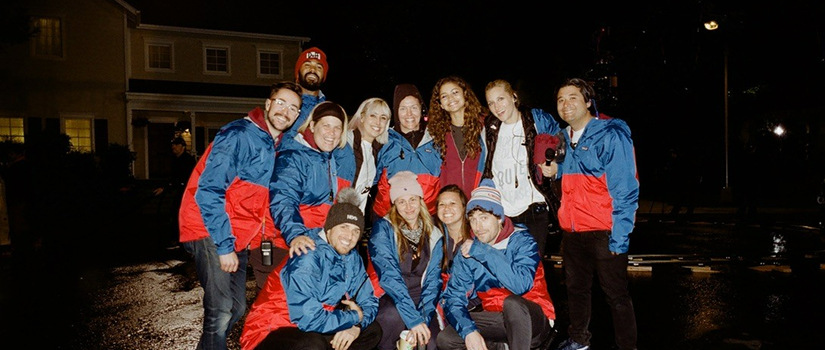Top image: Herman Phillips (far left, middle row) on the set of HBO's Euphoria in 2019.
Herman Phillips makes things happen. As a high school student, he started a production company that funded his college education. As a film and media studies major, he secured an internship with HBO to get hands-on experience in Los Angeles. And as a South Carolina Honors College student, he investigated the labor and the production technology aspect of film in his senior thesis, gaining a deeper understanding of the industry.
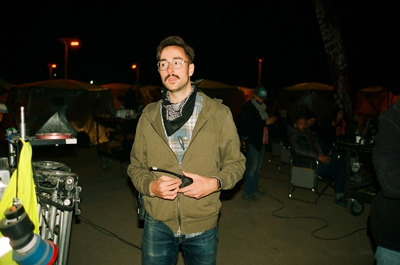
But when he arrived in Hollywood after graduating in 2018, ready to work in the assistant directors departments for projects such as The Mandalorian, he noticed that something wasn’t happening. Or, rather, that it wasn’t happening as efficiently as it should be.
“There is sophisticated technology in front of the camera,” he recalls. “And then you look at the disparity between, okay, I’m scheduling this on software that hasn’t been updated since 1987... and it just doesn’t make sense that we don’t have that. We don’t have modern technology to actually plan and execute the production.”
And from this disparity, Cinapse — a cloud-based scheduling software company that earned Phillips a spot on the Forbes 30 Under 30 list — happened.
The origin story
Behind the scenes of your favorite movies and television shows, assistant directors (ADs) manage every aspect of scheduling for each project. Hundreds of actors and crew can be involved, and Phillips was shocked to realize that ADs were managing schedules with a system called Movie Magic Scheduling that hadn’t been updated in about 20 years.
The result? Wasted time and paper.
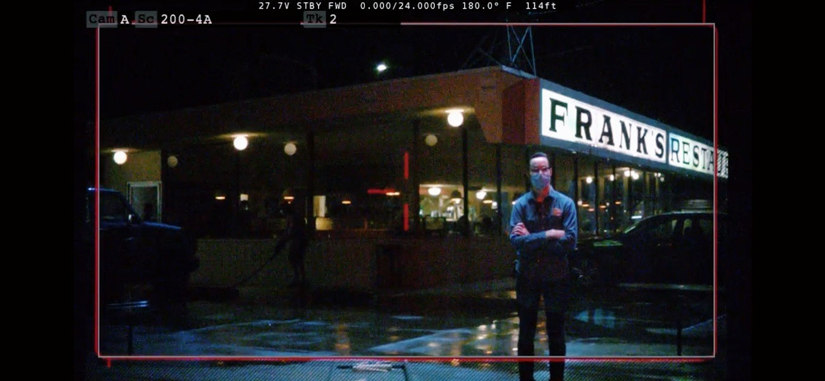
“There is a huge amount of pent-up demand for these people that schedule movies and TV shows, anywhere from $2 million to $250 million productions, to have a new scheduling software,” Phillips says.
He also realized that Movie Magic’s lack of real-time collaboration capability was anything but magical. ADs had to email updates back and forth on never-ending chains or print out schedules. As the limitations and frustrations added up, Phillips decided that he needed to make something happen — not just for his own use, but for the entire industry.
“I also didn’t want anyone else to do it because I felt like it needed to really come from someone in the industry who has experienced the pain first,” he says. “I didn’t think that this could really be solved by someone who doesn’t have that firsthand experience in production.”
The development montage
Instead of joining the Directors Guild of America, as had been his plan, Phillips and his business partner, first assistant director Heather Wagner (who has worked with directors such as Jon Favreau and Steven Spielberg) started developing Cinapse in 2020. As the team and the idea grew, they were accepted into Y Combinator, the top startup accelerator in the world, to learn more about running a software-based startup.
He also drew from his Honors thesis, which focused “on how the production department, so the logistics and operations, is sort of the center, the hub — the locus of control within the production software, but also within the production entity itself.” This knowledge has “definitely served me well,” he says, as he has nuanced insight about both the software logistics and the industry it serves.
From this starting point, Phillips and the Cinapse team continuously refined their goals and visions, determined to create software that would have a positive impact on the entire industry. To do this, they had a lot of questions for their target customers.
“I interviewed 500 members of the Directors Guild of America and the Directors Guild of Canada; that was part of our research and development process,” Phillips recalls. After considering these responses, Phillips and the Cinapse team spent six months in research and development. By January 2023, they were ready to build a beta version, which launched seven months later.
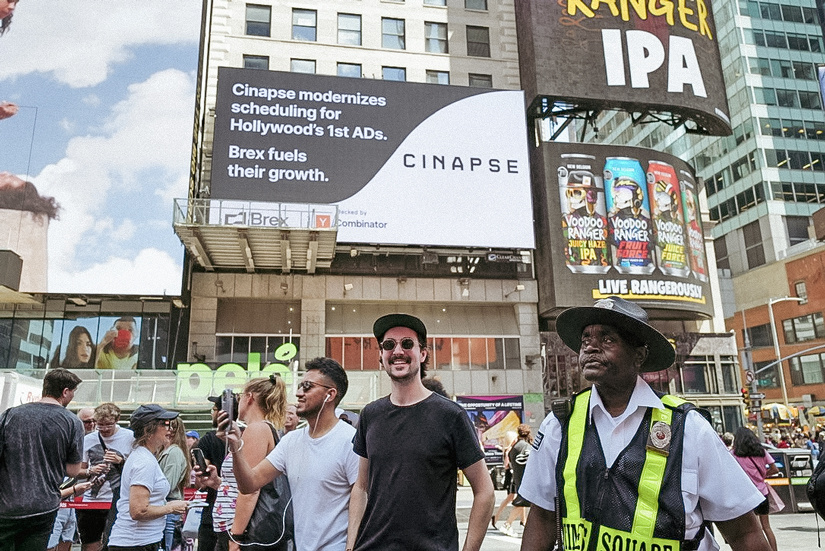
Now, over four years into the venture, Cinapse is out of beta testing and available as a full product — and about 15 percent of the Director’s Guild of America and Director’s Guild of Canada have signed up to use it.
“We have had nearly 50 film and TV productions use Cinapse to schedule their shoots. Those are productions have budgets anywhere from $2 million to $250 million,” says Phillips. The list of studios that use Cinapse includes Amazon, Apple, Netflix, Disney and Paramount, as well as the European network Sky. And this is just the beginning. According to Phillips, the company expects to have nearly 200 productions using the software in 2025.
Rave reviews
Initial responses to the software have been “overwhelmingly positive.” Users across the world appreciate features such as real-time collaboration on all aspects of production, allowing teams with multiple ADs, producers and production managers to work on a single file simultaneously. For remote shoots in locations lacking internet, Cinapse records all offline changes and automatically uploads them to the cloud-based file sharing system when internet access is restored. It’s an app that can adapt to any situation, team or project.
Phillips has been adapting throughout this process, as well. Though he’s always had an entrepreneurial spirit, he’s learned how to pitch his software successfully to a range of consumers and to bring big-name investors such as Neil Patrick Harris on board. He’s developed as a leader, as well, prioritizing transparency and honesty. “I’m not going to come in and hand down a decision from on high,” he says, emphasizing the importance of collaboration.
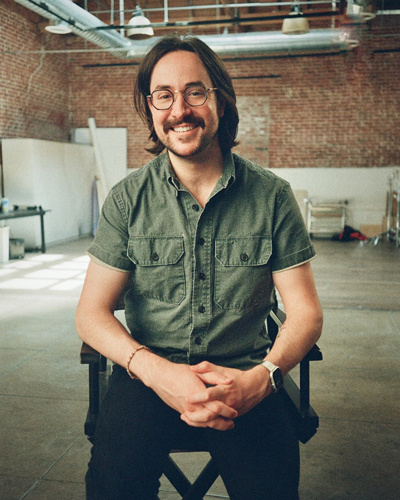
Behind the scenes
Though Cinapse occupies much of his time, Phillips is still fulfilling his artistic dreams. He and another Los Angeles-based USC alum are producing a short film that he plans to expand into a three-season series. The setting would be the Deep South, ca. 1980, and filming in Charleston would be “the dream location.”
When asked how he manages to make it all happen, he takes a moment to consider. “The short answer is passion,” he says, as well a daily dedication to mindfulness practices such as yoga.
“None of the influence, none of the money, none of any of that comes until later, much, much later,” Phillips says. “I think for me, it’s sustained by the fact that I’m extremely passionate about it, and I also really, really care about filmmakers.”
